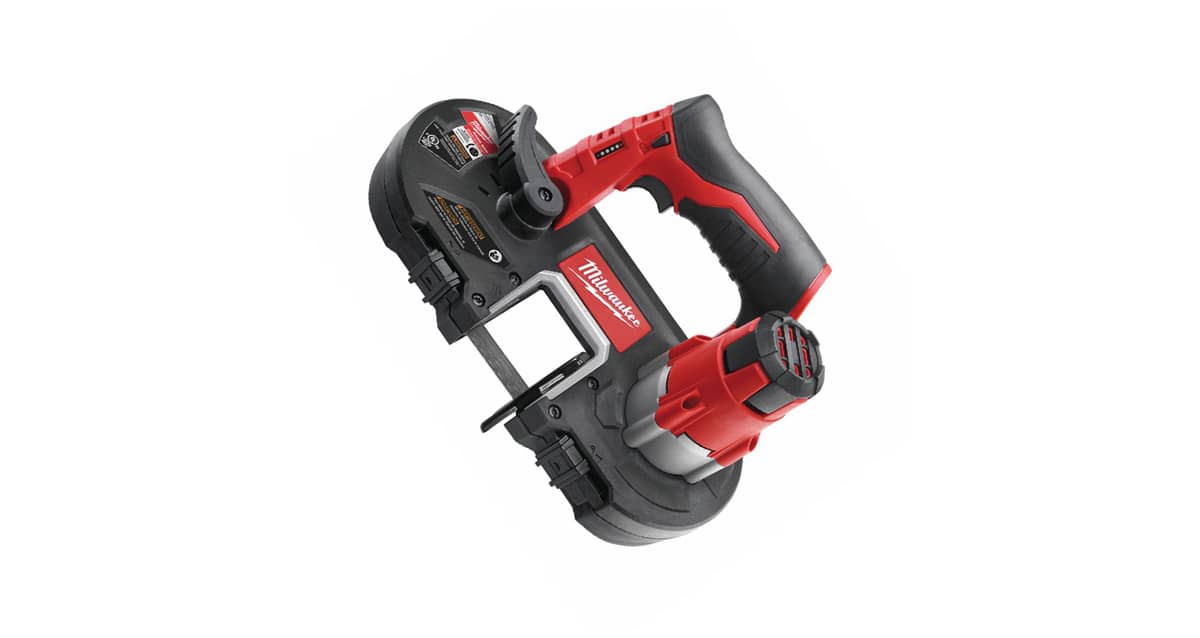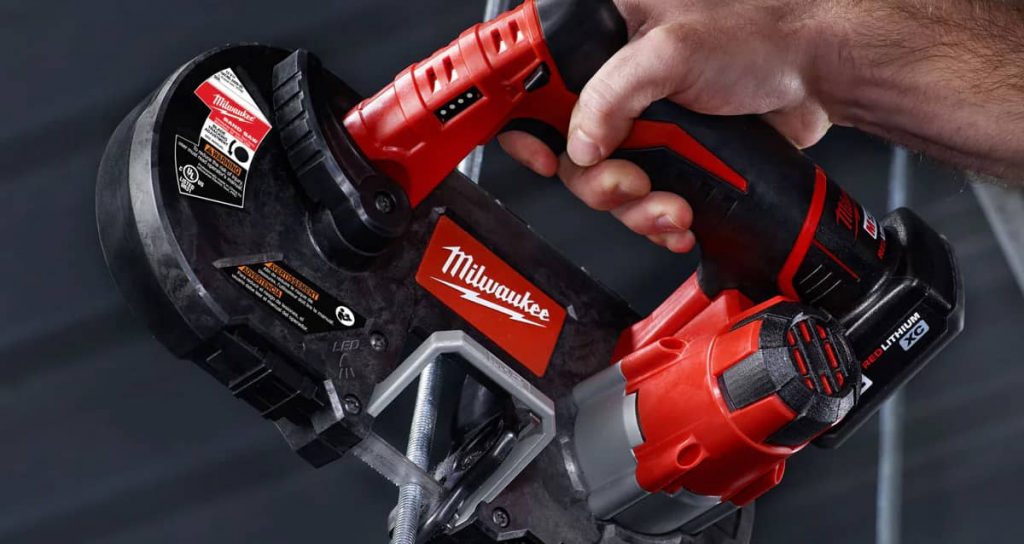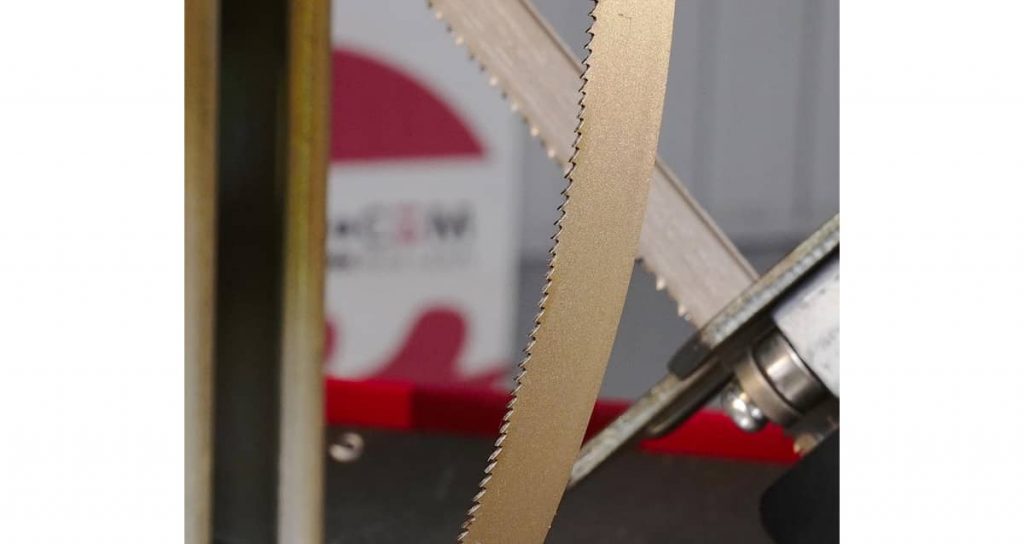The Impact of Blade TPI on Portable Band Saw Performance

Portable band saws are essential tools for cutting a variety of materials, but one often-overlooked factor that significantly influences their performance is the blade’s TPI, or teeth per inch. Choosing the right TPI for your material and application is crucial to achieving clean, efficient cuts. Whether you’re working on thick structural steel or delicate sheet metal, understanding TPI is the key to unlocking the full potential of your band saw.
What Does TPI Mean and Why Is It Important?
TPI refers to the number of teeth per inch on a band saw blade. This measurement determines how the blade interacts with the material being cut. A low TPI blade has fewer teeth, allowing for faster cuts and higher material removal rates, but at the cost of a rougher finish. Conversely, a high TPI blade has more teeth, which produces a smoother cut but requires slower cutting speeds to avoid overheating or blade damage.
When selecting a blade, always match the TPI to the material thickness and type to optimize performance.

TPI Selection Guide for Common Applications
The right TPI varies depending on the material and desired finish. Here’s a general guide:
- Low TPI (8-11): Best for cutting thicker materials like pipes, tubes, and structural steel. Provides faster cuts but a rougher finish.
- Medium TPI (10-14): Ideal for medium-thickness materials such as metal tubing and conduit. Balances speed and precision while reducing chatter.
- High TPI (18-24): Perfect for thin materials like sheet metal, ensuring clean cuts with minimal burring.
- Specialty TPI (14/18): Designed for hard materials such as stainless steel and titanium, offering durability and smooth results.
Benefits of Choosing the Right TPI
Selecting the appropriate blade TPI for your project provides several advantages:
- Efficient Cutting: Matching TPI to material thickness prevents the blade from binding or chattering, ensuring consistent results.
- Longer Blade Life: Using the correct TPI reduces wear and tear, extending the blade’s lifespan.
- Improved Precision: A properly matched TPI delivers cleaner cuts, minimizing burrs and additional finishing work.
- Faster Operation: Optimized cutting speed saves time without compromising quality.
TPI Recommendations by Material Thickness
| TPI | Section Size (Inch) | Recommended Applications |
|---|---|---|
| 8/11 | 1/4″ & Thicker | Thick materials like pipes, tubes, and steel. |
| 10/14 | 3/16″ – 1/4″ | Medium materials, reducing chatter. |
| 12/16 | 3/16″ & Thinner | Thin materials like sheet metal and tubing. |
| 14 | General Purpose | Aluminum, brass, and plastics. |
| 14/18 | Hard Materials | Stainless steel and titanium. |
| 18 | Thin Materials | Thin metals and tubing with minimal burring. |
| 24 | Very Thin Materials | Precision cuts on very thin materials. |
Compact and Lightweight for Tight Spaces
The Milwaukee M12 2429-21XC Sub-Compact Band Saw is the ultimate solution for professionals who need precision cutting in confined areas. Weighing only 6.75 lbs and measuring 12 inches in length, this cordless band saw offers unmatched portability and convenience. With a cutting capacity of 1-5/8” x 1-5/8”, it’s perfect for handling small diameter materials like ¾” EMT, cutting through in just 3 seconds. Whether you’re working overhead or in tight spaces, this tool’s one-handed operation and ergonomic design make it a go-to choice for electricians, maintenance professionals, and contractors.
Features Designed for Precision and Safety
Equipped with the M12™ REDLITHIUM™ XC High Capacity battery, the Milwaukee M12 delivers up to 150 cuts per charge, ensuring long-lasting performance on the job. Safety features like the dual-latching lower guard meet OSHA requirements, making it suitable for one-handed use, while the variable speed trigger and integrated LED light provide enhanced control and visibility. For optimal results, pair the saw with Qsaw 27 3/16″ x 1/2″ x .020″ Bi-Metal Portable Band Saw Blades for precise, clean cuts on a variety of materials. Backed by Milwaukee’s 5-year warranty, this tool combines power, portability, and reliability.

Expert Tips for Using TPI Effectively
To get the most out of your band saw blade, follow these tips:
- Assess Material Thickness: Always measure the material before selecting a blade. Thinner materials require higher TPI, while thicker materials perform better with lower TPI.
- Choose Multi-TPI Blades for Versatility: Blades with variable TPI (e.g., 10/14) provide flexibility for cutting materials of varying thicknesses.
- Maintain Blade Tension: Proper blade tension ensures optimal performance and prevents blade damage.
- Use Proper Cutting Speed: Adjust your band saw’s speed to match the material and TPI to avoid overheating or dulling the blade.
Explore the Versatility of Portable Band Saws in Automotive Tasks
Looking to unlock the full potential of portable band saws in the automotive industry? Our article “Portable Band Saws in Automotive Work: Applications and Techniques“ dives into how these compact tools streamline tasks like exhaust repairs, chassis modifications, and custom fabrication. Discover practical tips and insights to enhance your efficiency on the job. Click here to learn more and take your automotive projects to the next level!
Why Blade TPI Matters
The right blade TPI is essential for enhancing the performance of your portable band saw. Whether you’re working on heavy-duty projects or delicate materials, choosing the correct TPI ensures cleaner cuts, reduced downtime, and a longer blade lifespan. By understanding and applying TPI principles, you can elevate the efficiency and quality of your work while making the most of your tools.




